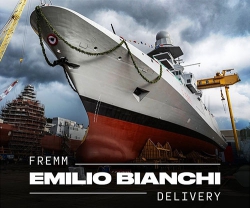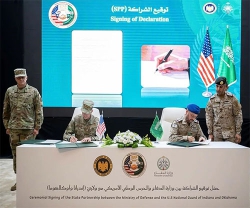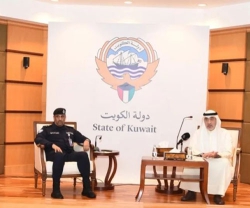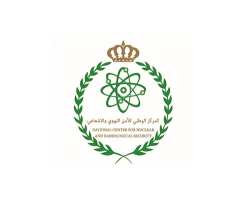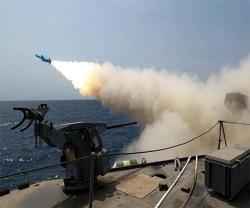Fincantieri subsidiary INSIS acquired a majority share in Support Logistic Services (SLS), a company based in Guidonia Montecelio (Roma), specialized in the production, installation and maintenance of radar, satellite and radio communications systems for military and civil applications.
The operation falls within the Group’s strategy to strengthen its competence in high-technology activities. As such, it is consistent with the development plan conceived for the newborn Electronics, Systems & Software Division to foster and improve innovation, its main competitive strength.
SLS is renowned for its products and solutions’ quality, as well as for the high level of service it is able to guarantee. These distinguishing features have allowed the company to create and maintain a sound client portfolio in a complex and fragmented market. With 2019 revenues amounting to about 9 million Euros, expected to further increase this year, almost half of the company’s 35 employees are engineers, systems analysts, design engineers and qualified technicians.
In recent years, Fincantieri has undertaken several actions to diversify and expand its product and service portfolio, steering it towards higher added-value solutions. This operation, therefore, will allow the company to gain direct access to a pool of highly qualified resources, to set up a high-technology center of excellence, while, at the same time, enabling SLS to further boost its industrial growth and its turnover.
Giuseppe Bono (photo), CEO of Fincantieri, commented: “This operation fits into our far-reaching strategy to consolidate and safeguard a supply chain made up of small and medium-sized enterprises. A dedicated corporate division will coordinate the various companies, which will continue to operate independently according to their intrinsic business approaches. This will allow them to retain key resources, expanding the pool of expertise of our Group”.
The closing of the transaction is subject to the usual conditions envisaged for comparable operations, as well as to the Italian Government refraining from exercising the “golden power” and to obtaining all the necessary authorizations from the relevant authorities.
Fincantieri is one of the world’s largest shipbuilding groups and number one for diversification and innovation. It is leader in cruise ship design and construction and a reference player in all high-tech shipbuilding industry sectors, from naval to offshore vessels, from high-complexity special vessels and ferries to mega yachts, as well as in ship repairs and conversions, production of systems and mechanical and electrical component equipment, cruise ship interiors solutions, electronic systems and software, infrastructures and maritime constructions as well as after-sales services.
With over 230 years of history and more than 7,000 vessels built, Fincantieri has always kept its management offices, as well as all the engineering and production skills, in Italy. With over 8,900 employees in Italy and a supplier network that employs nearly 50,000 people, Fincantieri has enhanced a fragmented production capacity over several shipyards into strength, acquiring the widest portfolio of clients and products in the cruise segment.
To hold its own in relation to competition and assert itself at global level, Fincantieri has broadened its product portfolio becoming world leader in the sectors in which it operates.
The Group has today 20 shipyards in 4 continents, nearly 20,000 employees and is the leading Western shipbuilder. It has among its clients the world’s major cruise operators, the Italian and the US Navy, in addition to several foreign navies, and it is partner of some of the main European defense companies within supranational programs.
Fincantieri’s business is widely diversified by end markets, geographical exposure and by client base, with revenue mainly generated from cruise ship, naval and Offshore and Specialized vessel construction. Compared with less diversified players, such diversification allows it to mitigate the effects of any fluctuations in demand on the end markets served.







